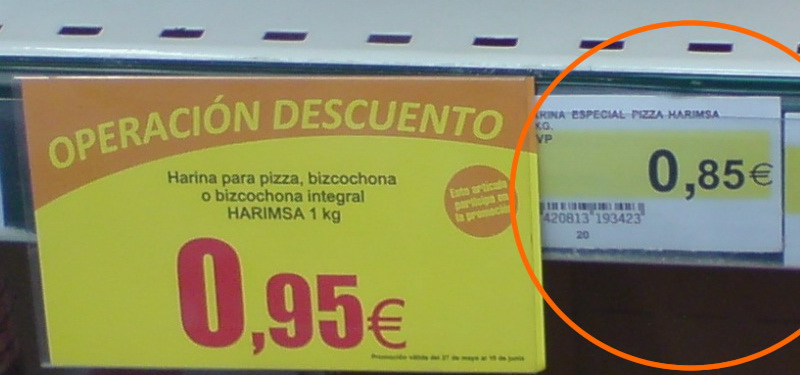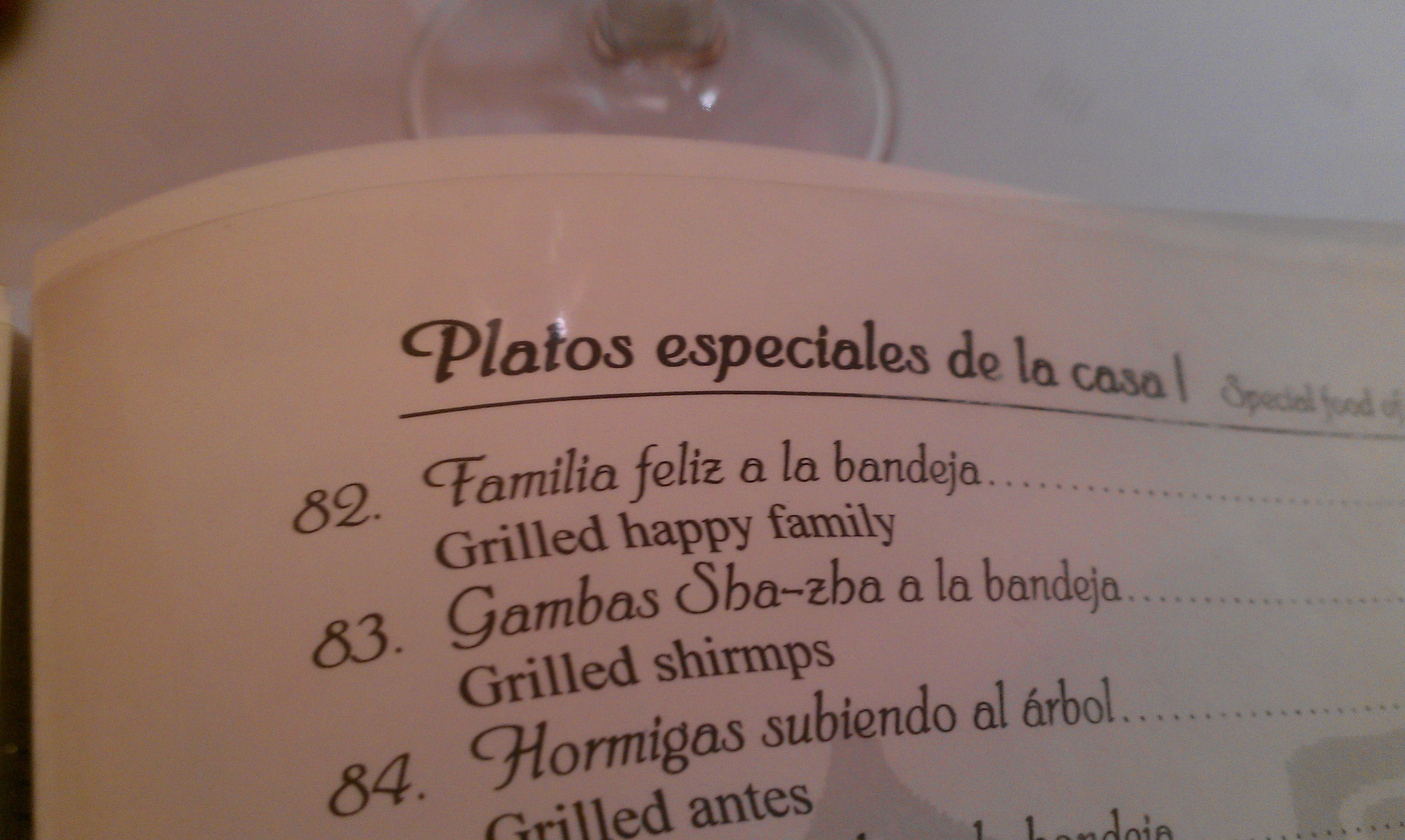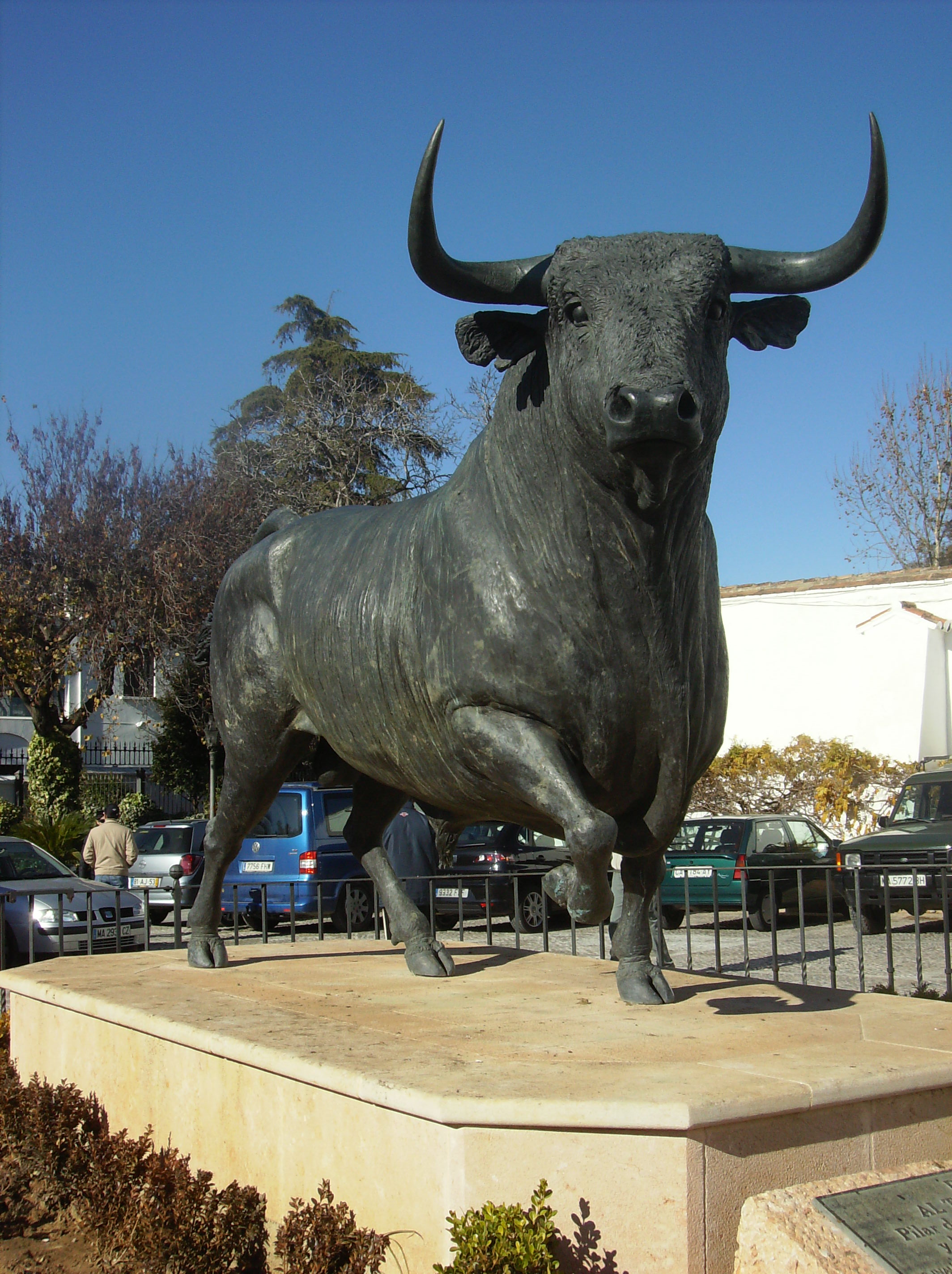It’s time for another edition of “Those crazy Spaniards and their crazy language!” We’ve already learned the many usages of cojones (and that Spaniards hold them, the actual things, in high favor), so why not continue the anatomy lesson and its uses in modern castellano with the face.
O sea, what are the uses of the word cara, other than it’s the adjective for expensive if the noun it describes is feminine, like casa or falda.
The word cara, like cojones in my house a few weeks ago, is all over the place. In this day and age, Spaniards are using the global economic meltdown as their scapegoat for everything, and calling all of the politicians a group of caraduras. “Crap, we’re out of milk. That stupid crisis! ME CAGO EN LA LECHE Y EN LA MADRE QUE LE PARIO A [Presidente] ZAPATERO.” Or, “My son is bad at school because of the crisis.” No he’s not, that’s a lie, and what you have is mucha cara, señora. So there.
Let’s have a look at how Spaniards inject more of their hilarious phrases with the word for face, shall we?
Por la cara
I always laugh at poorly done Spanish to English translations, such as this one:
But one I do love is to say, “by the face,” which means to do something and unexpectedly do it free. Take note: I went to Fulanito’s bar and got drunk por la cara. In other words, My bro hooked me up with as many whiskeys as I could drink, and I didn’t pay for a single one of them. Nowadays, it’s common to see the phrase in English used in advertisements geared towards young people.
Tener cara, Ser un/a caradura
Let’s say this one with a British accent: this means, for lack of better words, to be cheeky. Someone who can get away with having a little sass or, likewise, no shame. I have plenty of students who fit the bill, so it’s not uncommon for people to say that kids have caradura, or someone who makes excessive demands, too.
A similar expression, also using face!, would be to tener más cara que espalda – to have more cheek than back, literally. Or, tener morro works just fine, too.
Best just to say it as it is: to be a total desvergüenza like this guy.
Tener cara de sueño / malo / trasnochar…etc.
The most comment way I am greeted every morning is, “Seño, tienes cara de sueño!” which means I’m carrying a tired, mopey face. Tener cara de is merely a way for someone to comment on your current state of being (tired, party puss), or even something that is normally true (liar, good person). Like many uses of cojones, the adjective can be substituted for just about anything.
At the moment, I have a cara de tó – of sleepiness, of disgust (I made a bunch of small boats out of flan molds today, blah), de buena porque la soy, de todo!
Costar un ojo de la cara
Let’s play a game! What’s the phrase we use in Engrish that employs anatomical parts and means that something is worth a lot of money and you paid all that money for it? Why, yes, I was thinking of “it cost me an arm and a leg!” Spain’s version is translated as, costing an eye of the face, and it’s more fun because of it.
Going home at Christmas this year? Yep, I may as well be rocking an eyepatch these days. But as they say, a mal tiempo, buena cara.
Got any more to add? There are plenty more I haven’t included! Do me the favor of writing them in the comments – I’ve got more DELE and idioms studying to get done!









